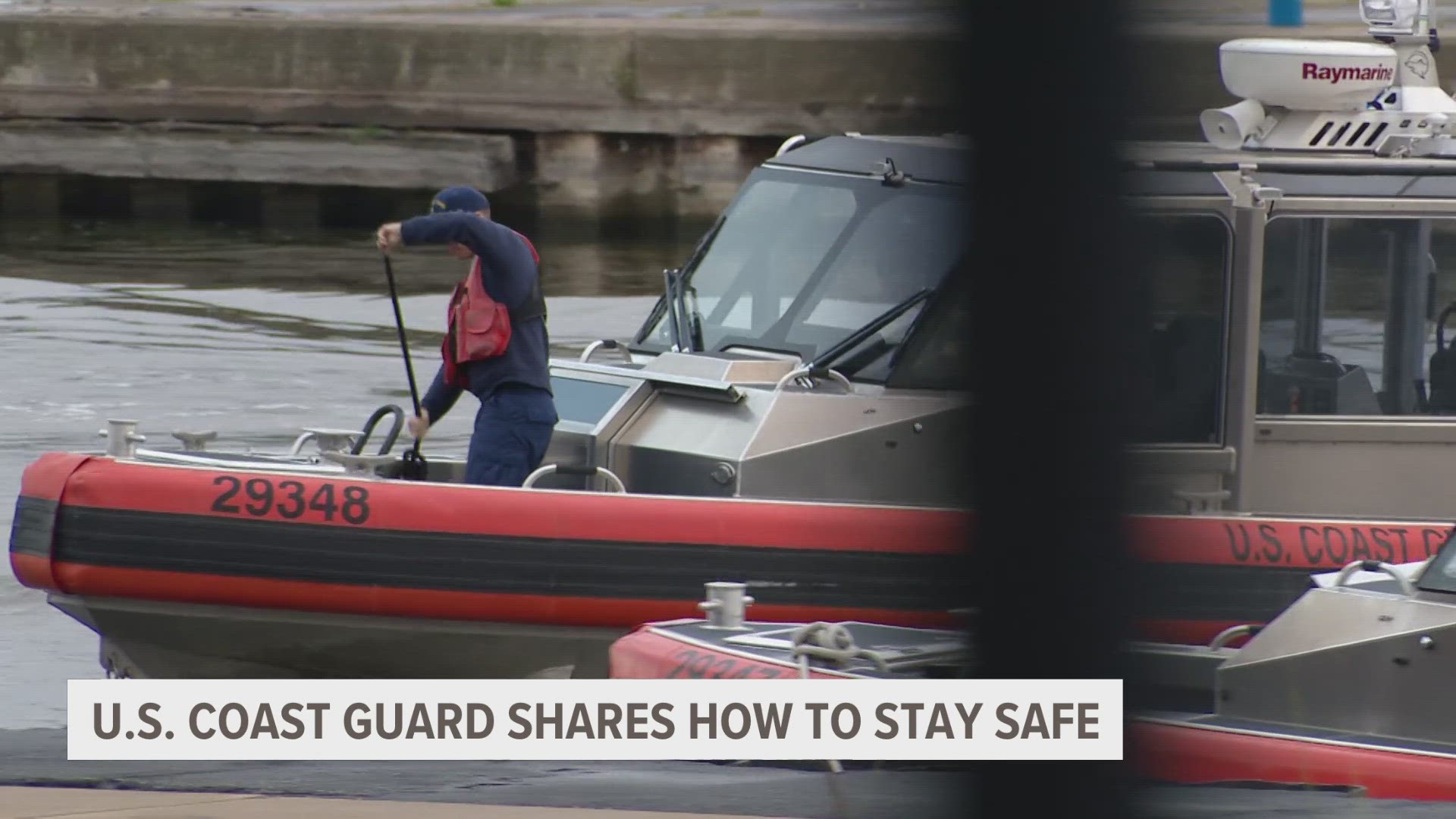GRAND HAVEN, Mich. — The U.S. Coast Guard is not giving up in the search for 61-year-old Fruitport resident David Split. He was reported missing after he launched from a private dock in Spring Lake Tuesday morning, but did not return. His boat was found 32 nautical miles off the coast of Grand Haven Wednesday afternoon.
The boat was still running when found, and Split was not found with the boat.
The Coast Guard says that a life jacket was missing from the boat, which has prompted them to believe he may still be alive in the water, as they say that by having a life jacket, his chances of survival are higher.
According to the U.S.C.G. having a floatation device is only one of several measures that can both keep boaters safe and increase their chances of survival in an emergency situation.
"The biggest thing that anybody can do if you're going to be heading out, especially by yourself, is to have a float plan," said Petty Officer Sean Whelan from Station Grand Haven.
Whelan says that communicating to someone where you will be going, how long you plan to be away, and what you are taking with you can be a critical step in assisting a search and rescue.
"If something does happen, if you fall overboard, if you get lost, you know, if something like an emergency comes up while you're underway, you know that's the easiest way to at least have an idea of where to begin to look for somebody," added Whelan.
Boater Larry LaBrier says he was cruising from Ludington to Grand Haven when he heard the Coast Guard announce on the radio for boaters to be on the look out for David Split, as he shared the equipment he says boaters should have for any emergency.
"The top end from my perspective for personal safety is I have an inflatable lifejacket. If I go in the water, this [personal floatation device] inflates, and also attached to it, I have a personal locator beacon, which is registered with Coast Guard," said LaBrier, as Petty Officer Whelan echoed the importance of having a personal locator beacon.
"You have sort of GPS devices that are more tailored towards that maritime search and rescue world. We refer to them as personal locator beacons. Essentially, if a ship or a small boat is in distress, you can activate that, and it's going to allow the Coast Guard to have a really good idea of what your location is," Whelan said.
Split's boat being found still running also prompts the Coast Guard to encourage having an engine kill switch on board.
"The whole purpose of the kill switch is to make sure that if you leave the boat for either an emergency or accidentally, it's going to stop moving. So we always encourage that people would have those on board especially if you're by yourself, for the fact that if you fall overboard, your boat isn't going to drift away from you and become inaccessible to you," said Whelan.
For Whelan, the greatest message for staying safe on the Great Lakes:
"I think the biggest thing is have a communications plan with a loved one, dress for the weather, have a backup means of communication, and where [personal floatation device] especially if you're by yourself."
►Make it easy to keep up to date with more stories like this. Download the 13 ON YOUR SIDE app now.
Have a news tip? Email news@13onyourside.com, visit our Facebook page or Twitter. Subscribe to our YouTube channel.
Watch 13 ON YOUR SIDE for free on Roku, Amazon Fire TV Stick, and on your phone.

